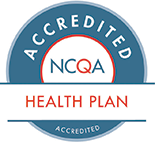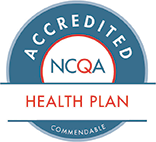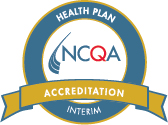Azithromycin (Zithromax or Zmax): Drug Safety Communication - Risk of Potentially Fatal Heart Rhythms
Issue
FDA is warning the public that azithromycin (Zithromax or Zmax) can cause abnormal changes in the electrical activity of the heart that may lead to a potentially fatal irregular heart rhythm. Patients at particular risk for developing this condition include those with known risk factors such as existing QT interval prolongation, low blood levels of potassium or magnesium, a slower than normal heart rate, or use of certain drugs used to treat abnormal heart rhythms, or arrhythmias. FDA has issued a Drug Safety Communication today as a result of our review of a study by medical researchers as well as another study by a manufacturer of the drug that assessed the potential for azithromycin to cause abnormal changes in the electrical activity of the heart.
FDA previously released a Statement on May 17, 2012, about a study that compared the risks of cardiovascular death in patients treated with the antibacterial drugs azithromycin, amoxicillin, ciprofloxacin (Cipro), and levofloxacin (Levaquin), or no antibacterial drug. The study reported an increase in cardiovascular deaths, and in the risk of death from any cause, in persons treated with a 5-day course of azithromycin (Zithromax) compared to persons treated with amoxicillin, ciprofloxacin, or no drug. The risks of cardiovascular death associated with levofloxacin treatment were similar to those associated with azithromycin treatment.
Background
Azithromycin is marketed under the brand names Zithromax and Zmax. Change to "FDA-approved indications for azithromycin include: acute bacterial exacerbations of chronic obstructive pulmonary disease, acute bacterial sinusitis, community-acquired pneumonia, pharyngitis/tonsillitis, uncomplicated skin and skin structure infections, urethritis and cervicitis, genital ulcer disease."
Recommendation
Health care professionals should consider the risk of torsades de pointes and fatal heart rhythms with azithromycin when considering treatment options for patients who are already at risk for cardiovascular events. FDA notes that the potential risk of QT prolongation with azithromycin should be placed in appropriate context when choosing an antibacterial drug: Alternative drugs in the macrolide class, or non-macrolides such as the fluoroquinolones, also have the potential for QT prolongation or other significant side effects that should be considered when choosing an antibacterial drug.
Healthcare professionals and patients are encouraged to report adverse events or side effects related to the use of these products to the FDA's MedWatch Safety Information and Adverse Event Reporting Program:
- Complete and submit the report Online: www.fda.gov/MedWatch/report.htm
- Download form or call 1-800-332-1088 to request a reporting form, then complete and return to the address on the pre-addressed form, or submit by fax to 1-800-FDA-0178.
Questions?
If you can't find an answer, please feel free to contact our Customer Service Customer Service Customer Service
Questions?
If you can't find an answer, please feel free to contact our Customer Service
Employer web tools
Benefit Tracker
Check benefits, eligibility, incentive and utilization
Rate finder is now in the Producer Dashboard
Log in with your current username and password to create quotes for groups up to 50.
Producer DashboardLog in






Hello.
We have exciting news to share. ODS is changing its name to Moda Health.
Moda comes from the latin term "modus" and means "a way". We picked it because that's what we are here to do: help our communities find a way to better health.
Together, we can be more, be better.
Please select the state you live in, or the state where your employer is headquartered, so we can tailor your experience:

Hello.
Please select the state you live in, or the state where your employer is headquartered, so we can tailor your experience:
Privacy notice
We use cookies and similar analytics technologies to understand how visitors interact with our website, improve performance, and enhance user experience. These tools help us analyze traffic patterns and usage trends.
We do not collect or store personal information, track users for advertising purposes, or use social media plugins.
By continuing to use this site, you acknowledge our use of cookies for analytics purposes only. For more information, please refer to our Privacy Policy.
Changing your location to Oregon
You can return to your previous location in the site header.

